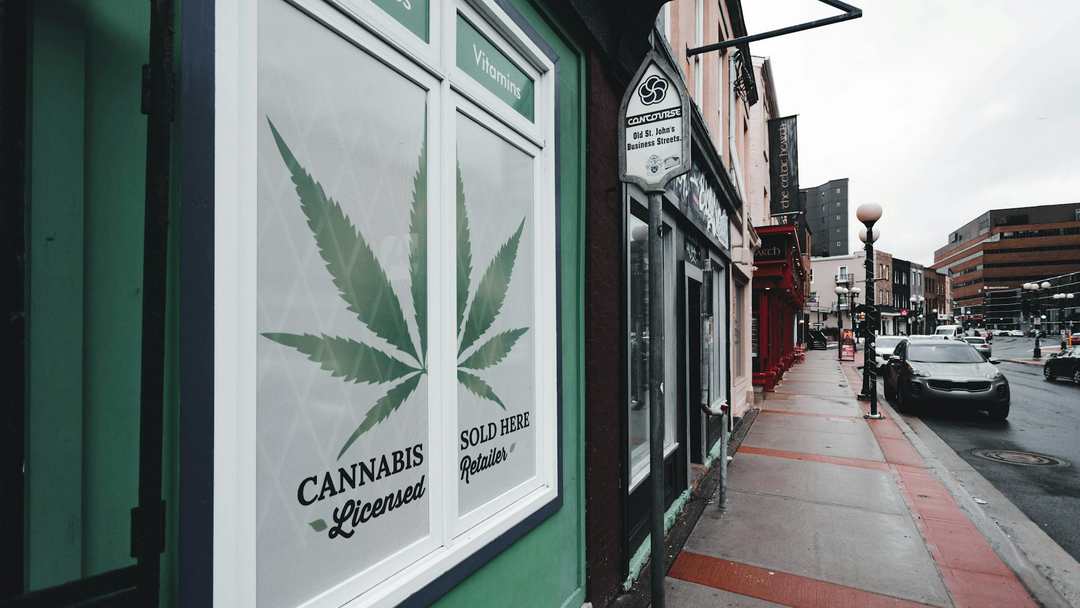The Michigan State Police Forensic Science Division (FSD) DNA Profiling System is a comprehensive program that uses DNA analysis to support criminal investigations throughout the state. The system is housed within the Biometrics and Identification Division (BID), which was formed in 2011 to consolidate the MSP’s forensic resources and expertise.
The FSD DNA Profiling System is comprised of three main components:
DNA laboratories: The MSP operates seven regional forensic laboratories across the state, each of which is equipped to conduct DNA analysis. These laboratories are staffed by highly trained forensic scientists who use cutting-edge technology to extract, analyze, and interpret DNA evidence.
Combined DNA Index System (CODIS): CODIS is a national database that stores DNA profiles from convicted offenders, unsolved crime scenes, and missing persons. The MSP’s CODIS laboratory compares DNA evidence from crime scenes to profiles in the CODIS database to identify suspects or link crimes together.
DNA Database Unit: The DNA Database Unit is responsible for collecting and storing DNA samples from convicted offenders and felony arrestees, as required by state law. The unit also manages the MSP’s CODIS program and provides training and support to law enforcement agencies throughout Michigan.
The FSD DNA Profiling System has been instrumental in solving a wide range of crimes, from homicides and sexual assaults to burglaries and robberies.
In 2020, the MSP’s DNA laboratories processed over 10,000 DNA samples and made over 1,200 CODIS matches.
The FSD DNA Profiling System is a valuable tool for law enforcement in Michigan. It helps to identify suspects, solve crimes, and bring criminals to justice. The system is also a powerful deterrent to crime, as criminals know that their DNA may be used to identify them if they are caught.
Here are some additional details about the FSD DNA Profiling System:
- The system is accredited by the American Society of Crime Laboratory Directors (ASCLD/LAB).
- The system is funded by a combination of state and federal grants.
- The system is available to all law enforcement agencies in Michigan.
Here are the rules
DEPARTMENT OF STATE POLICE
FORENSIC SCIENCE DIVISION
DNA PROFILING SYSTEM
R 28.5051 Definitions.
Rule 1. As used in these rules:
(a) “CODIS” means the federal bureau of investigation’s combined DNA Index
System.
(b) “Offender” means an individual who is required to provide a DNA sample for a
qualifying offense at arrest or upon conviction or a finding of responsibility under
1931 PA 328, MCL 750.520m and 1990 PA 250, MCL 28.176(1) or any other applicable
law.
(c) “Sample” means a source of cellular DNA that is collected using the DNA
collection kit provided by the department.
(d) “Upon conviction” means within a reasonable time after conviction and
sentencing or disposition, but before the offender’s release or transfer from state or county custody, as applicable.
(e) “At arrest” means within a reasonable time after arrest, typically during the
booking process.
(f) “Designated agency” means the law enforcement agency that is
responsible for the sample collection and transmittal of the sample to the department.
(g) “DNA” means deoxyribonucleic acid, the heredity material contained in nuclear
cells.
(h) “Department” means the Michigan department of state police.
(i) “Qualifying offense” means those offenses for which an individual provides a
sample for DNA testing as required by law at arrest, upon conviction, or upon a
finding of responsibility.
(j) “Profile” means the results of the DNA identification profiling of a sample,
including a paper, electronic, or digital record.
R 28.5052 Applicability.
Rule 2. These rules apply to the collecting of samples from the following individuals:
(a) Offenders who are arrested for a qualifying offense under 1931 PA 328, MCL
750.520m(1)(a).
(b) Offenders who are convicted of a qualifying offense under 1990 PA 250, MCL
28.176(1)(b).
(c) Offenders who are prisoners and have not already provided a sample as
required by 1953 PA 232, MCL 791.233d(1) that meets the requirements of these rules.
(d) Juvenile offenders who are found responsible for a qualifying offense under
1990 PA 250, MCL 28.176(1)(a) and 1939 PA 288, MCL 712A.18k.
(e) Juvenile offenders who are under the supervision of the state department or
county juvenile agency under 1988 PA 73, MCL 803.225a and have not already
provided a sample that meets the requirements of these rules.
(f) Juvenile offenders who are public wards under 1974 PA 150, MCL
803.307a(1) and have not already provided a sample that meets the
requirements of these rules.
Have your rights been violated?
Have your driving priviledges been revoked?
Has your professional license been suspended?
Second Amendment rights taken away?
Have you been charged with a crime?
Call our office to see if we can help
Komorn Law 248-357-2550
28.5053 Responsibility for collecting samples.
Rule 3.
(1) The departmentshall provide DNA collection kits to eachdesignated agency. Each designated agency shall contact the department to order DNA collection kits. Each agency shall designate a point of contact correspond with the department regarding matters concerning DNA collection. Each agency shall notify the department of the designated point of contact’s name, address, and telephone number at which the department may direct correspondence to the point of contact regarding matters concerning DNA collection. If the designated point of contact has an e-mail address, the address shall also be provided to the department.
(2) DNA collection kits shall be only used for collecting samples from offenders.
DNA collection kits shall not be used to collect evidentiary samples for submission in criminal cases.
(3) The designated agency shall provide gloves to the individual performing
the collection. The individual performing the collection shall wear gloves at all times while performing sample collection and packaging.
(4) Each designated agency shall determine if a DNA sample is already on file for
the offender through the criminal history record. DNA samples shall not be collected when the criminal history record indicates a DNA sample has previously been obtained from the offender.
(5) If a determination is made that sample collection from the offender is required,
then the following shall apply as to the designated agencies:
(a) When applicable law requires sample collection upon arrest of an offender,
the investigating law enforcement agency is the designated agency. The collection of a sample from the offender and transmittal of the sample to the department shall be completed within 30 days of the arrest.
(b) When applicable law requires sample collection upon conviction or a finding
of responsibility, unless otherwise ordered by the court, the investigating law
enforcement agency is the designated agency. If the designated investigating law
enforcement agency does not collect a sample from the offender within 15 days of conviction or finding of responsibility, the county sheriff is then the designated agency for collection unless otherwise ordered by the court. If a sample has not already been collected, collection of a sample from the offender and transmittal of the sample to the department shall occur before any transfer or release of the offender, whatever the terms of incarceration. If theoffender will be incarcerated for more than 30 days, the collection of a sample from the offender and transmittal of the sample to the department shall be completed within 30 days of the conviction or finding of responsibility.
(c) When applicable law requires sample collection before release from serving a term of incarceration in a facility under the control of the county sheriff, the county sheriff is the designated agency. If a sample has not already been collected, collection of a sample from the offender and transmittal of the sample to the department shall occur before any transferor release of the offender, whatever the term of incarceration. If the offender will be incarcerated for more than 90 days, the collection of a sample from the offender and transmittal of the sample to the department shall be completed 90 days prior to the offender’s release.
(d) When applicable law requires sample collection from an offender and the offender is transferred into a facility under the control of the Michigan department of corrections to serve a term of incarceration, the Michigan department of corrections is the designated agency. If the sample has not already been collected, collection of a sample from the offender and transmittal of the sample to the department shall occur before release of the offender, whatever the term of incarceration. If the offender will be incarcerated for more than 90 days, the collection of a sample from the offender and transmittal of the sample to the department shall be completed within 90 days of receipt of the offender into the facility.
(e) When applicable law requires sample collection from an offender and the offender is serving a term of incarceration in a facility under the control of the Michigan department of corrections, the Michigan department of corrections is the designated agency. If a sample has not already been collected, collection of a sample from the offender and transmittal of the sample to the department shall occur before release of the offender, whatever the term of incarceration. If the offender will be incarcerated for more than 1 year, the collection of a sample from the offender and transmittal of the sample to the department shall be completed a minimum of 1 year prior to the offender’s release.
(f) When applicable law requires sample collection from an offender and the offender is placed under the supervision of a state department or county juvenile agency or is declared a public ward, the investigating law enforcement agency is the designated agency. Collection of a sample from the offender and transmittal of the sample to the department shall occur before any transfer or discharge from wardship, whatever the term of supervision. If the offender will be under supervision for more than 30 days, the collection of a sample from the offender and transmittal of the sample to the department shall be completed within 30 days of the offender being placed under supervision.

R 28.5054 Procedures for sample collection.
Rule 4.
(1) An offender shall be positively identified by the designated agency or its designee before the samples are taken. The state identification number associated with the offender, if there is an assigned state identification number, shall be used for this purpose and recorded in the specified area on the DNA collection card.
(2) After the offender is positively identified, the designated agency shall collect
samples from the offender according to the collection instructions included in the
DNA collection kit. The sample collection shall be performed by the designated agency
or its designee; however, the designee shall not be the offender. The designated agency
shall provide gloves to the individual performing the collection. The individual
performing the collection shall wear gloves at all times while performing sample
collection and packaging.
(3) Only the DNA collection kit provided by the department shall be used to collect
samples.
(4) The DNA collection card shall be completed by the designated agency prior to
beginning sample collection. All relevant information requested on the DNA collection
card shall be provided. The DNA collection card shall bear the fingerprint impressions
of the offender’s thumbs in the spaces indicated on the DNA collection card.
(5) The collecting, labeling, storing, handling, and transmitting of the samples
collected shall comply with the collection instructions included in the DNA collection
kit. Within 72 hours of sample collection, the DNA collection kit shall be transmitted
to the department by hand delivery, U.S. Mail, or certified carrier.
R 28.5055 Profile record storage and access.
Rule 5.
(1) The national DNA database system “CODIS” shall be used to file, catalog, retrieve, and compare DNA profiles.
(2) Access and use of the CODIS system shall be in accordance with federal law, memorandum of understanding with the federal bureau of investigation for participation in CODIS, all applicable CODIS rules, polices or procedures, and any licensing agreements established by the United States government.
R 28.5056 Privacy protection.
Rule 6.
The results of the DNA profiling shall be disclosed only as provided in 1990 PA 250, MCL 28.176(2).
R 28.5057 Authorized use.
Rule 7.
The department shall only use samples and/or test results for the purposes provided in 1990 PA 250, MCL 28.175a (the DNA IDENTIFICATION PROFILING SYSTEM ACT).
R 28.5058 Disposal of samples and profiles.
Rule 8.
A sample or profile shall not be disposed of if the department determines the individual has otherwise become obligated to submit a sample or if the disposal of the sample would destroy sample or data relating to another individual who would otherwise be retained.
If the sample is eligible for disposal, the sample shall be disposed of in the following instances:
(a) Disposal is ordered by a court of proper jurisdiction in accordance with 1990 PA 250, MCL 28.176(10).
(b) The department receives awritten request for disposal from the investigating police agency or prosecutor in accordance with 1990 PA 250, MCL 28.176(11).
(c) The department receives a written request for disposal and a certified copy of a final court order in accordance with 1990 PA 250, MCL 28.176(11)(b).
R 28.5059 Effect of noncompliance with rules.
Rule 9.
The uploading of DNA profiles into the state DNA database may be denied if the designated agency fails to comply with these rules.
SOURCE FOR RULES: Courtesy of www.michigan.gov/orr
Don’t forget to always check for updates if you are going to use this information for legal purposes and you should probably consult a lawyer.
Related Articles
Whitmer’s $3B plan to fix Michigan’s roads calls for more taxes
Same Thing - Different DayWhitmer's $3B plan to fix Michigan roads calls for more corporate, marijuana taxes, taxes at the pump and you can just imagine the ones you don't know about.Michigan Governor Gretchen Whitmer has introduced a comprehensive three billion...
Making terrorist threat or false report of terrorism is free speech?
Making terrorist threat or false report of terrorism is free speech?The US Constitution and Michigan Constitution prohibit the government from making laws that abridge the freedom of speech Summary In the case of People of the State of Michigan v. Michael Joseph...
Qualifying for a Public Defender in Michigan
In Michigan, individuals charged with a crime have the constitutional right to legal representation.In Michigan, individuals charged with a crime have the constitutional right to legal representation. For those unable to afford a private attorney, the state provides...
Earned Sick Time Act – 2025 New Laws in Effect for Michigan
Some laws in effect in 2025 "Enacted by the People of Michigan" Here we go...remember these laws can change at any moment because that's what the politicians do that you don't.Earned Sick Time Act Because everyone is sick...sometimes Read more on your own time.AN ACT...
More Posts

If I renounce my US citizenship can I get it back?
Venezuela or Bust If I renounce my U.S. citizenship can I get it back?Renouncing U.S. citizenship is a serious legal action. It involves voluntarily giving up your status as a U.S. citizen, usually by signing an oath of renunciation at a U.S. embassy or consulate...

New Laws in Effect for Michigan in 2025
Some laws in effect in 2025 "Enacted by the People of Michigan" Here we go...Minimum wage Improved Workforce Opportunity Wage Act - Michigan's minimum wage will increase twice during 2025, per a 2018 Supreme Court ruling. Starting Jan. 1, 2025, the standard minimum...

The Police Took Your Cellphone – Now What?
Everything you have and say will be evidence used against you. The Police took your cellphone - Now what?After your arrest, you arrive at the police station where you go through the booking process, and your cellphone is taken from you. Once you are released, your...

Feeling Bullied? Here’s Michigan’s Anti Bullying Laws.
Michigan Anti-Bullying Laws & Policies Components of State Anti-Bullying Laws and Regulations How are bullying and cyberbullying defined in Michigan anti-bullying laws and regulations? Michigan anti-bullying laws and regulations include the following...

Former 3M scientist who made unsettling PFAS discovery says bosses deceived her
Gee - What a surprise... When a former 3M scientist discovered the company’s chemicals were in human blood in the general population, she says her bosses misled her to believe it was harmless.3M accused of deceiving its own scientist about PFAS in human blood Hansen...

Drones – What Drones?
Jersey cops launched into the night sky with catapults to throw dreamcatchers at the unknown drones to entangle their props and bring em down! Just kidding - I think.Darrr.. What drones? Those drones pose no threat there are no drones. That's just a balloon,...

Cash For Kids Judge Pardoned (The Kickback Club)
Biden’s commutation for Judge in ‘kids for cash’ scandal should anger the entire universe.Biden’s commutation in ‘kids for cash’ scandal. BY MICHAEL RUBINKAMUpdated 5:32 PM EST, December 13, 2024A judge implicated in one of the most notorious judicial scandals in U.S....

How Much Does It Cost To Hire a Criminal Defense Attorney?
Don't do the crime - if you can't pay the price.Average Flat Fees. Some criminal defense attorneys charge a flat fee for certain types of cases, instead of billing by the hour. This may or may not include filing fees, motions, fees, etc. Flat fees include: DUI/DWI –...

What do you do when you are pulled over for suspected DUI?
If you are pulled over for suspected drunk driving you are probably going to be arrested. The less you say - the better off you are in the long run. If you find yourself being pulled over for suspected DUI, ensure you pull over safely to the roadside, maintain a...

Trump plans – How does Cannabis Business fit in?
You work hard. Now get ready to work harder to prepare to give more.President Biden's administration has proposed the reclassification of marijuana from a Schedule I controlled substance to a Schedule III drug, which recognizes its medical benefits. This significant...














